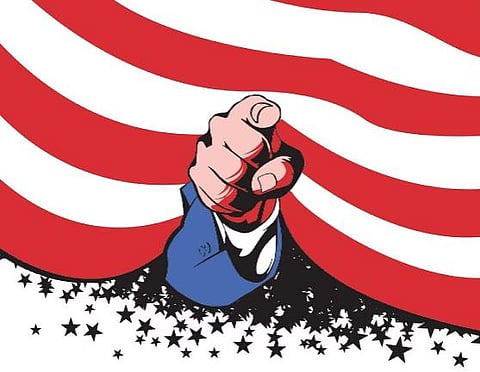

Tempers are running high after the allegations of Canadian Prime Minister Justin Trudeau about the killing of Khalistani terrorist Hardeep Singh Nijjar on Canadian soil. The lame-duck PM chose to call the murdered man an activist as it serves his political constituency.
Canada and many Western countries have become a haven for criminals, underworld dons and terrorists who continue to use their soil to create trouble in their homelands. While many qualified people with exceptional skills wait for years to get a permanent residency or citizenship, criminals and terrorists find it easier to get absorbed in such societies. All you need is a fat purse, a dubious claim of facing persecution in one’s country and some connections with local politicians. After that, as proven from Nijjar’s case, it doesn’t matter whether you are a wanted criminal in your country of origin or not. As long as you are not a threat to your adopted country, you can indulge in any criminal and terrorist activity in any non-Western nation.
The Western exceptionalism is mind-boggling. After colonising half the world for over two centuries; after perpetuating the slave trade of Africans and Asians for more than three centuries; after exterminating the native populations wherever they landed, like America, Canada etc.; after marching millions of minorities to gas chambers and Nazi concentration camps; after running gulags; after dropping two atom bombs on Asians; after pulverising Iraq in search of the elusive weapons of mass destruction; after sponsoring wars in African countries; after bombing at will and killing citizens of various countries by allocating any labels they choose to give, these countries keep lecturing others about human rights.
For the most part of known history, civilisations like that of India, China, Persia or Egypt had dominated. It was only after the conquest of India and the discovery of America that the West came into prominence. And what a disaster to humanity that has been. While no one can take away the exceptional achievements of Europe, and later America, in the field of science and technology in the past 200 years—which also helped their domination—one can never forget the human cost of Western domination. Large-scale environmental destruction, two world wars, simmering tensions across the globe and overt and covert racialism are what the rest has got from the West.
In comparison, for more than 2,000 years, two giants—Indian and Chinese civilisations—co-existed peacefully, enriching each other with culture, religion and technology. India never had a better friend than China in its long civilisational history. There is no denying that there have been border issues with China since India gained independence. It is a legacy left behind by the British, but the attitude of the Communist Party of China has not been helpful and this is driving India to the hands of the West again. While in the short term, this may be necessary, it is going to hurt both the Asian giants in the long run.
The Western domination in the past few hundred years was achieved by making bordering nations fight each other. There is not a single country that the British left—after centuries of colonisation and sucking out the resources dry—without ensuring there was constant tension between the neighbours. They managed to make a mess of the place before they left. Take the case of the subcontinent. After 200 years of colonisation, it would have been only natural for Indians to have resentment against the British.
Instead, when they were leaving, they ensured that we butcher each other and, like fools, we fell for it. Now, India and Pakistan are sworn enemies and both vie for Western approval and attention. For both, the bad guy is one next door, and the big daddy, who knows best, keeps playing one against another. Both spend a huge budget on weapons that the West sells us happily. Our border problems are the legacies left by the British. We learn in our textbooks that the colonisers used a divide-and-rule policy to conquer us. It is funny that it is said in the past tense. The West still uses it to keep Asia and Africa in check. It is imperative for their interests that India and China, India and Pakistan and other such neighbouring countries remain rivals.
We need to learn from how the West always keeps the white man’s interests as top priority. Though they give big talks about human rights, and democracy and through many international institutions control, hand out dubious rankings and certificates on random parameters as decided and standardised by them to non-Western countries, they have no qualms in breaking every rule as long as it serves their interest. They can make alliances with dictatorships, can turn a blind eye towards blatant human right violations or even pogroms so far as it suits them.
Take, for instance, the constitution of the UN Security Council. Fading powers of Europe, which are as big as some of the Indian states both in population and economy, have more say than the world’s most populous nations or even giants like Japan or Korea. Until Asians see the true nature of the great game being played on all of us, we are bound to remain a bunch of people fighting with the neighbours and looking eagerly for the white man’s approval. There is an urgent need for an Asian Axis. Else, this century would not look different from the past 300 years.
Anand Neelakantan
Author of Asura, Ajaya series, Vanara and Bahubali trilogy
mail@asura.co.in